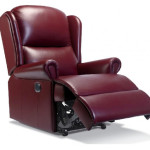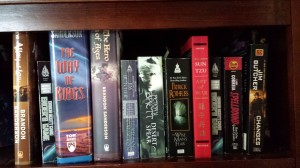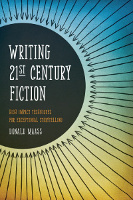I wanted to follow-up on Quincy Allen’s great post of October 15, 2013 about the value of active convention attendance on your marketing plan. The post is particularly timely as I’m packing my bag for World Fantasy which will be held in Brighton, England from October 31 – November 2. Quincy shared how his career had been enhanced by his decision to attend conferences. Like Quincy my successes in writing can be traced back to my decision to attend a conference. But that’s only a part of the story. Showing the is the easiest part. What Quincy did, and I recommend you do, is he was an active participant in the conferences.
Taking a convention from being a fun event to being a professional marketing tool is hard work. We attend writers’ conferences or seminars, to market our writing, and to meet other writers, agents, publishers and editors. For ease of reference, I’ll refer to agents, publishers and editors collectively as “agents.” You cannot sit in the seminars and only interact with the group of people you came if you are marketing. Every day of a convention is an interview. Every moment of every day is an opportunity for you to help or hurt your career. So how do you ramp up your marketing potential at a Con?
Before the Con: do your homework.
One of the things I love about World Fantasy is it posts a list of attendees or “members” so I can see if my dream editor or agent is going to attend. This year WFC also has a separate list of attending publishers so if you don’t know that Jane Doe is with XY Literary you can see that XY Literary is attending and investigate further. Conventions are often crowded. Decide in advance who you’d like to make a connection with, why, and how.
I wanted to talk to Peter Beagle because I love his stories and since he was a Guest of Honor that year . How was I going to meet to him? Because he was scheduled for a reading, an interview session, and to attend the banquet I knew where and when I could find him, but I also asked my friends if anyone knew him. One of the founding Fictorians did and she introduced me. Ask your friends and colleagues if they know the person you want to meet. Chances are that one of them does. A personal introduction will usually take you a lot further than cold calling on someone. If the person you want to speak with is not giving a lecture or otherwise booked to be in a specific place be prepared to check the Con Bar – regularly.
If you are planning to pitch a story make sure it’s finished. “Finished” does not mean the first draft is complete. It means you have done everything you can to make the story as compelling and as free from typos as you can. Prepare your pitches. Ace Jordyn attended last year’s WFC with a list of the people she wanted to meet, and pitches prepared for each work and each person. Amazing, really.
At the Con: Be professional and bold.
I’ve written about this before so I’m not going to delve too deeply here. Appearances matter. If you want to be taken as a professional be dressed as one. Does that mean you have to wear a suit? No – unless that’s your brand. Look at just about any New York Times best-selling author’s website and you’ll see what I mean. Lisa Scottoline, a retired lawyer and writer of legal thrillers, wears suits. She wore one when she was instructing at the Seak, Legal Fiction for Lawyers convention where I met her. Because of who she is and what she writes the suit is part of her brand. Neil Gaiman and Brandon Sanderson don’t wear suits. In fact, I would guess that the bulk of professional writers don’t wear suits. Still, they all look professional. You should too.
Act professional. Don’t interrupt, don’t be rude. Enough said about that.
Go boldly. Follow-up on your plans. Go to the places the people you are looking for are likely to be. Talk to them when you find them. If you can’t find them, ask other people if they might know where Jane Doe is. You must approach strangers at a convention. You must ask friends to introduce you to people you don’t know, but want to. At least one agent has said that she only signs people she’s met at a convention, and the agent doesn’t wear a name tag. She, like every other agent, wants to see you’ve done your research and that you’re passionate about your work. After all, if you’re not excited about and willing to sell your work, why should she be? Sitting in a corner watching the con go by will not result in publication.
Strike while the iron is hot. If you are engaged in a genuine conversation and someone asks what you are working on. Tell them.
After the Con: Follow-up.
Oh lucky day! You spent three hours talking to your dream editor at the Con Bar. So, now what? Follow-up with that person just like you would do at any other networking event. Send her an e-mail saying you enjoyed meeting her at the Con. Make the e-mail specific so that if you drinking a purple girly drink remind the editor so she, who met hundreds of people at the Con, has the opportunity to place you. If you were asked to submit to the editor do so now. It not, just thank her for her time. At minimum, follow the editor’s twitter feed or friend her on Facebook. Comment honestly on posts. If she posts something you find interesting you should comment on it. If not, you shouldn’t. You are trying to maintain and forge a genuine connection with her.
Don’t forget your friends. Remember all those people who helped you research and introduced you around? Thank them as well.
Conventions are one of our most powerful marketing tools if used correctly. Meeting someone at a convention may make the difference between a polite “no, thank you” and a sale. Treat every convention like an extended job interview because that’s what it is. Your primary goal is to form honest and lasting connections with the people you meet. Succeeding at that goal leads to success.







